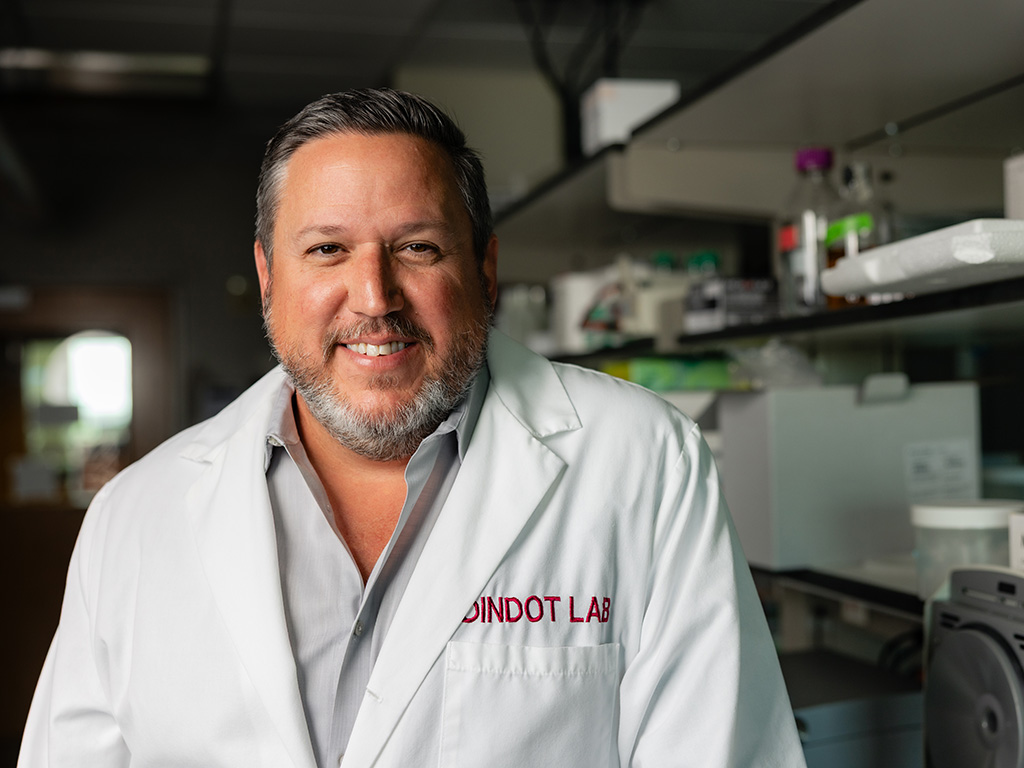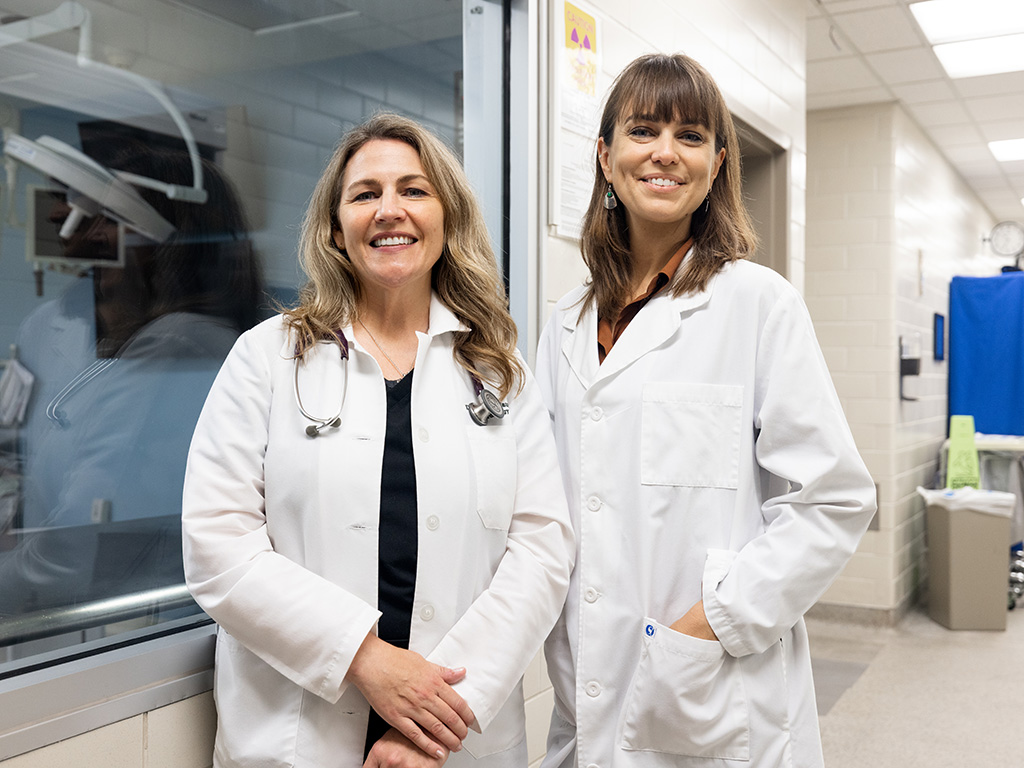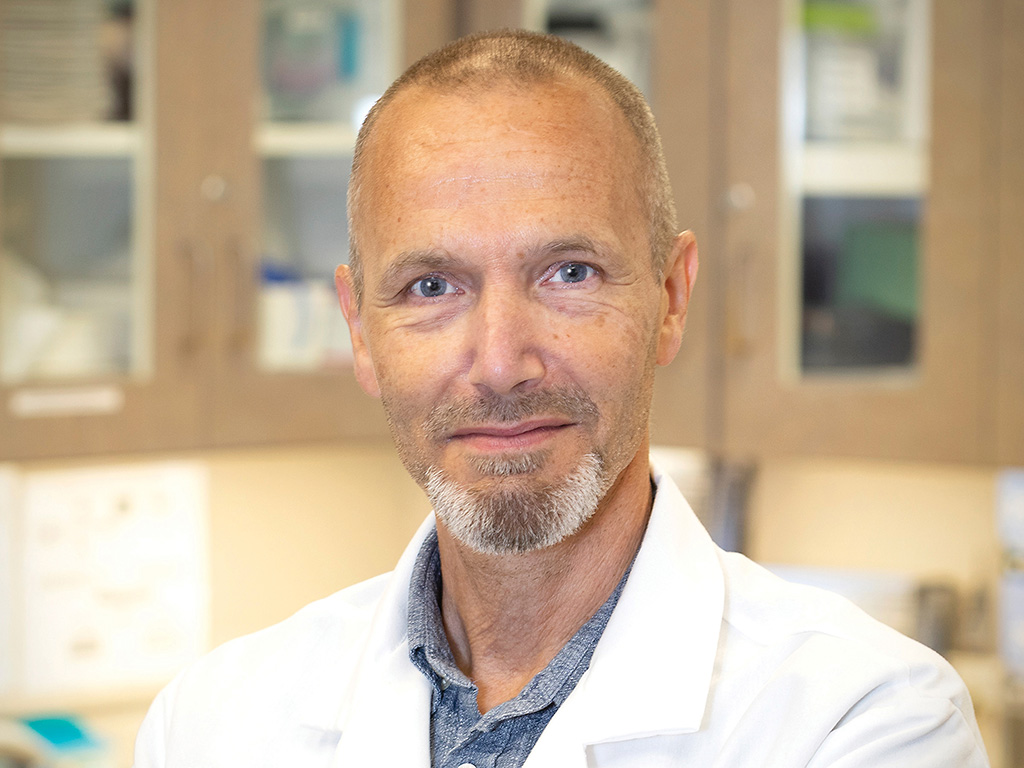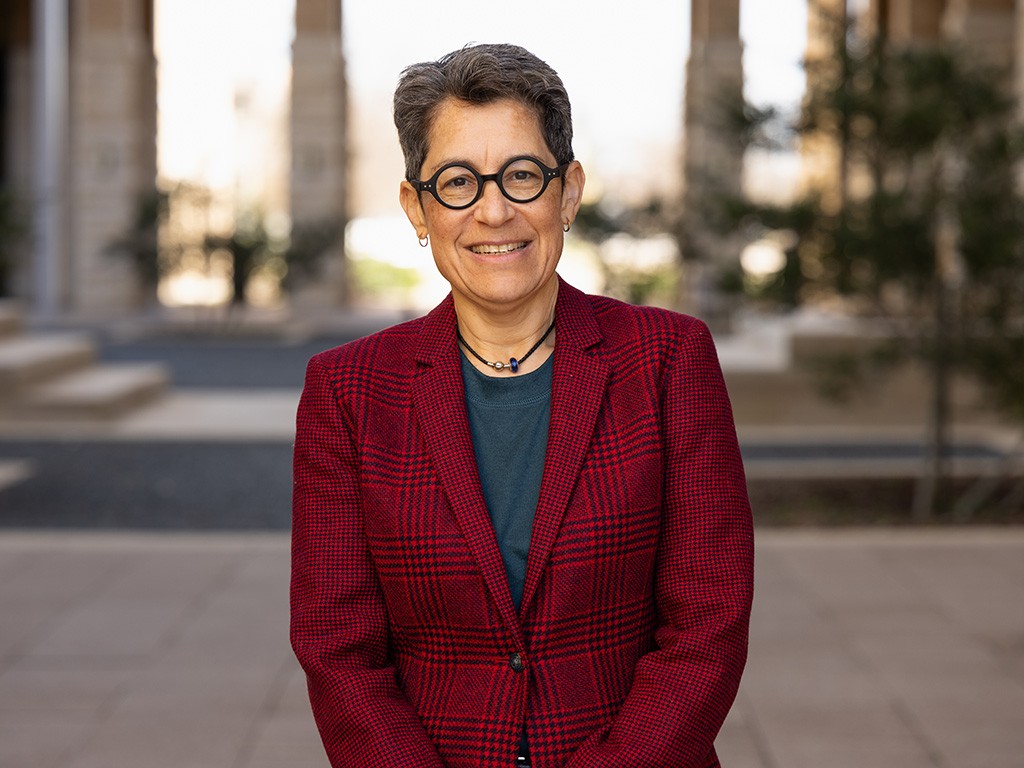VMBS Professors Named EDGES Fellows For High-Impact Contributions
Story by Megan Bennett, VMBS Marketing & Communications
Drs. Sarah Hamer and Jan Suchodolski, faculty members at the Texas A&M College of Veterinary Medicine & Biomedical Sciences (VMBS), are among 17 individuals across the university who have been named 2025 Chancellor Enhancing Development and Generating Excellence in Scholarship (EDGES) Fellows by The Texas A&M University System.
Launched in 2019, EDGES Fellowships were developed with resources from Texas A&M University System Chancellor John Sharp to honor, incentivize, and boost mid-career faculty who demonstrate significant accomplishment in their discipline, have gained recognition both nationally and internationally, and are on track to be honored for their accomplishments at the highest levels.
“It is a privilege to witness the profound impact that Drs. Sarah Hamer and Jan Suchodolski have made in their respective fields,” said Dr. John R. August, the Carl B. King Dean of Veterinary Medicine at Texas A&M. “Dr. Hamer’s tireless work in epidemiology and zoonotic diseases has significantly advanced both veterinary and public health, while Dr. Suchodolski, through his pioneering research on the gastrointestinal microbiome, has greatly enhanced our understanding of small animal medicine.
“Their contributions exemplify the highest standards of scientific excellence and compassionate service that the VMBS is known for, and the two are remarkable representatives of the world-class research happening across our college,” he said.
Dr. Sarah Hamer

Hamer, a professor in both the VMBS’ Department of Veterinary Integrative Biosciences and the Department of Veterinary Pathobiology, is an expert in epidemiology, zoonotic diseases, and avian health.
One of her main areas of study is Chagas disease, a tropical illness of human beings and dogs caused by the parasite Trypanosoma cruzi, which is spread by triatomine bugs, or “kissing bugs.” Because the disease can cause serious heart and digestive system problems if left untreated, Hamer and her collaborators are working to develop improved diagnostics and treatment methods.
In 2020, Hamer also became well-known for her work on SARS-Cov-2 — the virus that causes COVID-19 — and other coronaviruses.
Her studies have focused on the roles companion animals and deer play in coronavirus transmission, and her projects made international headlines when her team identified the first COVID-19-positive cats in Texas and the first known COVID-19 UK variant in an animal.
As the Richard Schubot Endowed Chair and director of the Schubot Center for Avian Health, which was founded in 1987 to improve the lives of birds and their environments, Hamer also conducts research on topics related to bird health, such as nutrition.
She plays an important role in training future veterinary leaders through her role with the Schubot Center and as one of the lead faculty members for the VMBS’ Veterinary Public Health & Epidemiology program.
Dr. Jan Suchodolski

Suchodolski, a professor in the VMBS’ Department of Small Animal Clinical Sciences and associate director of the Gastrointestinal Laboratory, has made significant contributions to small animal veterinary medicine through his research and service in the GI Lab.
Throughout his research career, Suchodolski has contributed to more than 160 research articles about dogs. His work includes looking at the metabolome — the complete set of small-molecule chemicals produced during metabolism — of both dogs and cats and examining how they interact with antibiotics.
One of Suchodolski’s most recent research projects discovered that fecal microbiota transplants (FMT) can reduce negative mental health symptoms in dogs with epilepsy — especially in dogs with drug-resistant epilepsy.
He also validated a new diagnostic index called the Dysbiosis Index (DI), which aids in distinguishing between acute and chronic GI dysfunction and detecting non-GI disorders in dogs.
While Suchodolski’s discoveries primarily benefit dogs and cats, they also build a bank of knowledge about the bacteria composing the microbiome in other species, including human beings. Suchodolski also holds the Purina Petcare Endowed Chair for Microbiome Research and was the 2024 recipient of the American Veterinary Medical Association (AVMA) Career Achievement in Canine Research Award. For the past two years in a row, he has been named one of the nation’s top veterinary scientists by Research.com, an academic platform that objectively ranks researchers based on scientific publications.
###
For more information about the Texas A&M College of Veterinary Medicine & Biomedical Sciences, please visit our website at vetmed.tamu.edu or join us on Facebook, Instagram, and Twitter.
Contact Information: Jennifer Gauntt, Director of VMBS Communications, Texas A&M College of Veterinary Medicine & Biomedical Sciences, jgauntt@cvm.tamu.edu, 979-862-4216
You May Also Like








